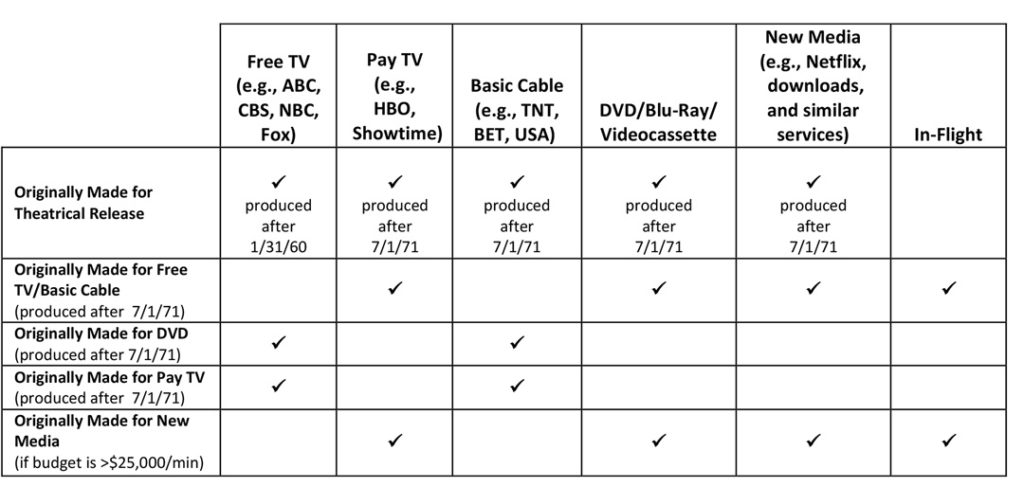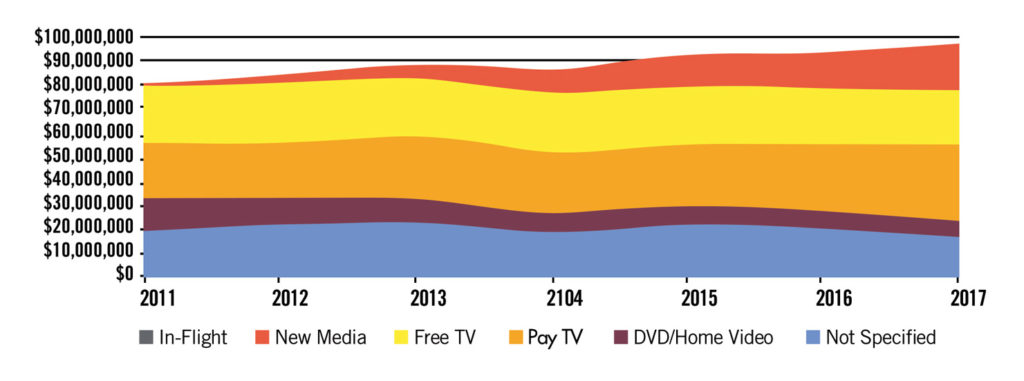Since we last reported to you, the world has continued to change. Fortunately, the Film Musicians Secondary Markets Fund’s (FMSMF) commitment to the work of collecting and distributing the secondary market residuals that are so critical to the lives and livelihoods of working musicians is unchanged.
As working film/TV musicians are aware, with the onset of the pandemic the Fund took the extraordinary—and one time —step of issuing its “July” distribution on May 22, more than a month earlier than originally scheduled. Over $99 million was distributed to almost 17,000 participants, just as work in the industry ground to a halt. The Fund’s urgency in issuing this early distribution reflects our recognition that secondary market residuals are an indispensable component of working musicians’ financial security, and the security of their families.
The annual distribution of supplemental market residuals from the smaller Live Television Videotape sub-fund, which covers programs such as Saturday Night Live, The Tonight Show, and other programs produced under the AFM’s Television Videotape Agreement, was issued on schedule on July 1. The Fund distributed approximately $1,076,000 to 1,587 participants in that distribution.
With those two main distributions completed, work resumed on distributing “re-issue” payments to musicians or their beneficiaries who had unclaimed residuals waiting at the Fund. Since July 2020, we have distributed a little more than $919,000 in unclaimed residuals to 196 Fund participants.
Keeping Eyes on the Road Ahead
During the first six months of Fiscal Year 2021 (April 1, 2020 to September 30, 2020), collections remained on pace with Fiscal Year 2020, with a little over $58 million collected as of September 30, 2020, as compared to $57.3 million collected as of September 30, 2019. The Fund will continue to monitor closely the pace of collections through the remainder of this fiscal year, to assess whether the slowdown in production during calendar 2020 has a trailing effect on the residuals collected between now and March 31, 2021, the end of the current fiscal year.
As we have continued to observe, the slowdown of production and closures of movie theaters because of the pandemic have accelerated the shift by companies to invest more in content made directly for digital streaming services, and specifically to their own streaming services. As we have also observed, these changes in the business paradigm could have a significant impact on musicians’ residuals. Although the Fund does not participate in the negotiations between the AFM and the Alliance of Motion Picture and Television Producers (AMPTP), the Fund will carefully observe the outcome of the 2021 theatrical and TV negotiations, which should also be of keen interest to every recording musician.
New Films for Fiscal 2021
Despite the slowdown in current production, the Fund has continued to receive residuals for pre-pandemic films and TV programs that are reporting residuals for the first time. As of the halfway mark of FY2021, almost 150 “new” titles reported to the Fund. Among the titles that have paid in for the first time in FY2021 are theatrical films such as Alita: Battle Angel, Bad Boys for Life, Just Mercy, Birds of Prey, Da 5 Bloods, Motherless Brooklyn, and others. In addition to receiving residuals for the most recent seasons of TV series such as Black-ish, Blue Bloods, Chicago Fire (and Med and PD), whether it has been driven by the pandemic or not, we also have observed that companies are pulling older series out of the vault and licensing them for secondary market distribution. In the past six months, the Fund has received first time residuals for seasons of vintage TV series such as Star Trek: Voyager (1990s), Moonlighting (1980s), and Columbo (1970s), among others.
Please Keep Up to Date
Please make sure that your beneficiary information is up to date with the Fund. In recognition of the difficulties for musicians in finding notary services in the current environment, until further notice, the Fund will accept non-notarized Beneficiary Designation Forms so long as valid proof of government-issued identification such as a driver’s license or passport is provided. You can find more information about the Fund’s beneficiary policies on our website at www.fmsmf.org/beneficiary or email us at participantservices@fmsmf.org with questions.
We strongly urge all Fund participant musicians to enroll in the Fund’s Go-Paperless program. Given the recent pressures on the US Postal Service, some of which may have lasting effects for months or years to come, it is in the best interest of all participants to ensure their residuals are received through safe, instant, and secure Go-Paperless/Direct Deposit. For more information on how to enroll in Go-Paperless, please visit www.fmsmf.org/faqs/pstart.php.
The Fund is committed to providing prompt and courteous service to participants throughout these challenging times, despite working at reduced capacity. Please note that responses to correspondence sent to us by US mail may be delayed. The best way to reach us is to send your questions or concerns via email to participantservices@fmsmf.org. And please visit our website at www.fmsmf.org and our page on Facebook for updates on Fund information.
On behalf of the Fund, we extend our sincere wishes to all members of the AFM and their families to remain safe and in good spirits. Each of us on the Fund staff wish you and yours a peaceful and healthy holiday season and a far better 2021. We are here to support you, and stand united with the community of professional musicians as we all work through the times ahead.








